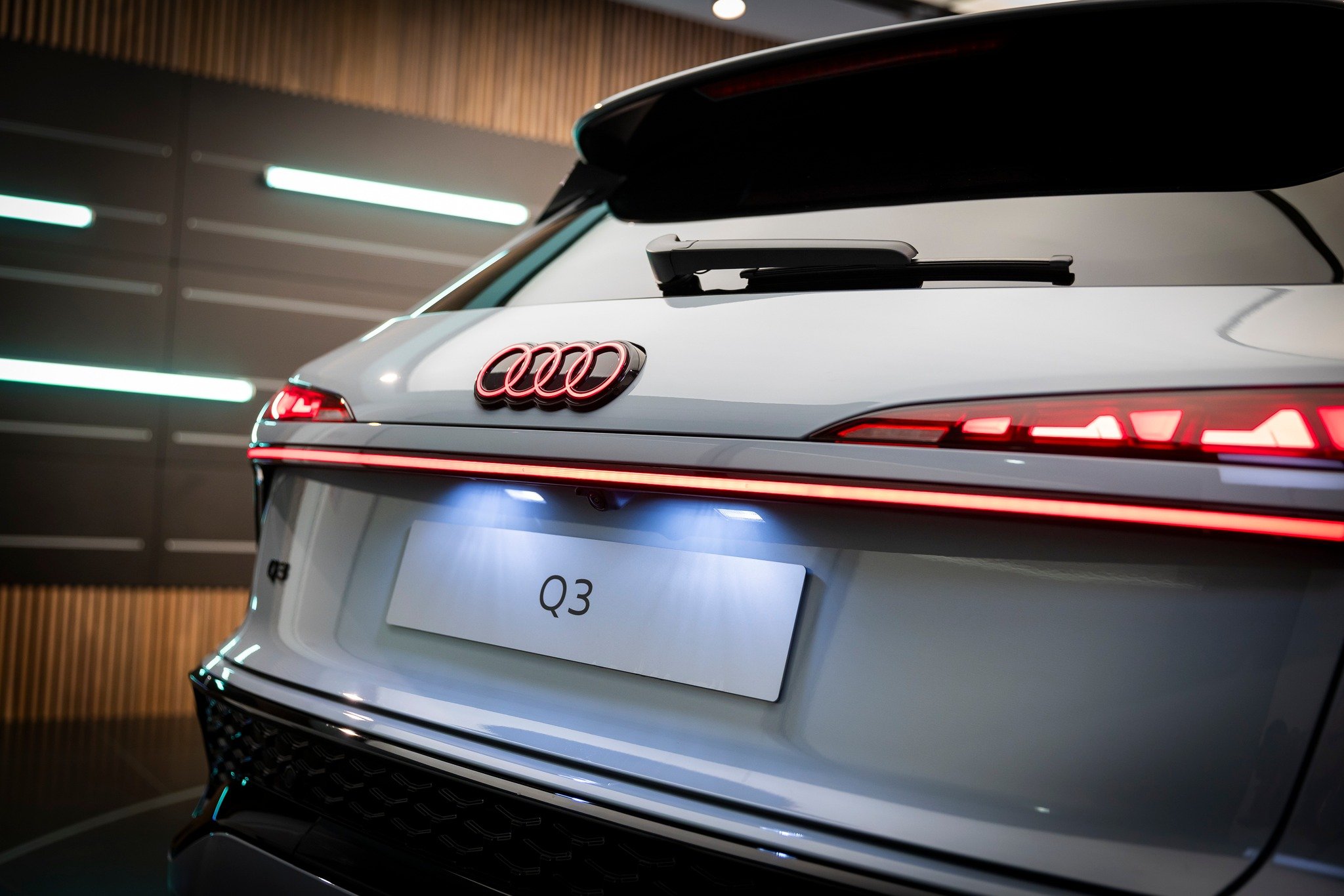
Series production of the compact SUV will soon begin at the Hungarian factory.Continue reading
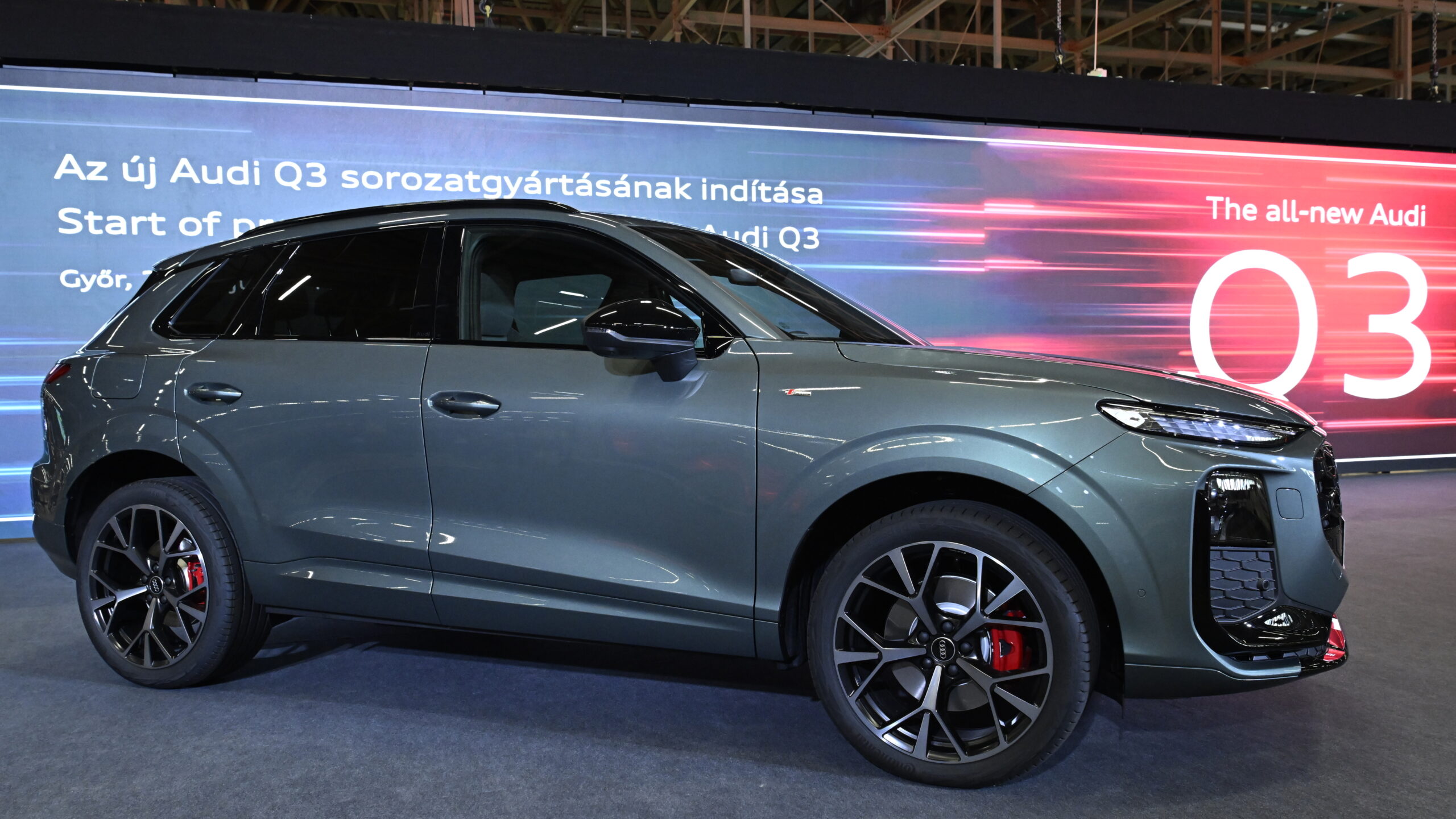
In the presence of Prime Minister Viktor Orbán, series production of the third-generation Audi Q3 model was launched on Thursday at the Audi Hungaria Zrt. plant in Győr, western Hungary.
“Audi is a matter of heart for us,” said Prime Minister Viktor Orbán at the production launch ceremony at the German giant’s vehicle plant in Győr. The head of government emphasized that three and a half decades ago, after the change of regime (1989, end of communism), it was questionable whether the country would be able to integrate into modern Western economic systems, and it was clear that this would require technology from foreign investors.
Audi was the first Western European car manufacturer to say, ‘We are coming, we believe in you, we see a future in Hungary, we will be successful, and we will do it here, together with you,'”
he said.
Orbán explained that Audi is therefore “not just a car manufacturer” for Hungary, and that it is not merely an economic issue. Audi’s present, future, and fate represent a special commitment for Hungary and the Hungarian Government, he said. The Prime Minister pointed out that the future of European car manufacturing is not an abstract economic policy issue, but a pressing, difficult issue for 160,000 Hungarian families whose fate and livelihood are linked to car manufacturing.
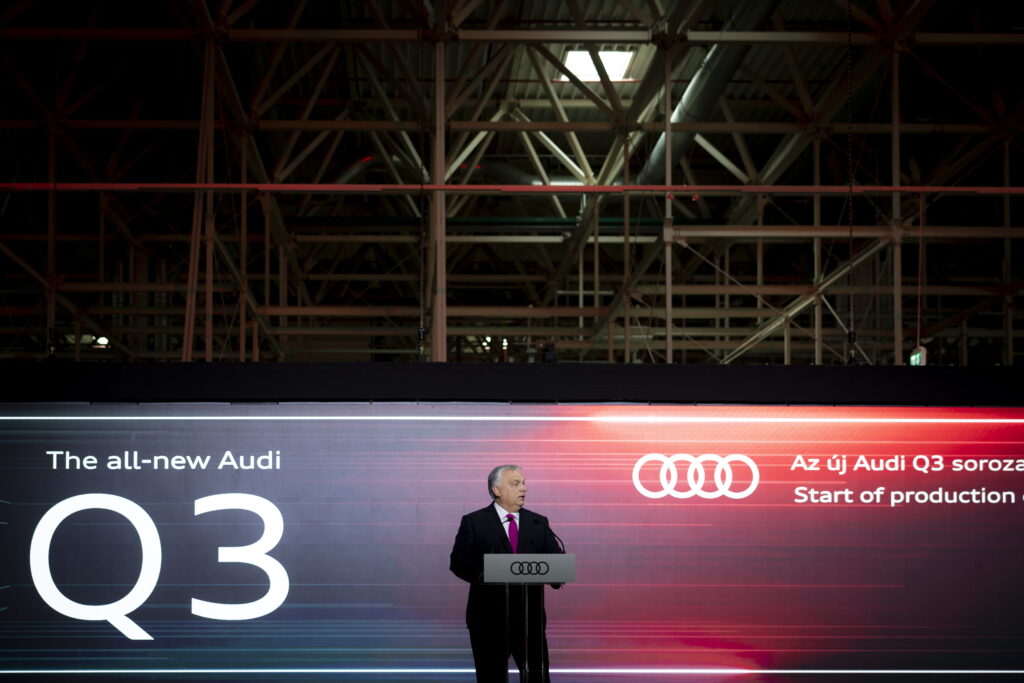
Photo: MTI/Miniszterelnöki Kommunikációs Főosztály/Fischer Zoltán
Orbán emphasized that given the situation of the European automotive industry and the global automotive market as a whole, the most competitive profession is now not that of the politicians who govern the country, but that of the car manufacturers. The fiercest competition in the world today is in car manufacturing, he noted. He pointed out that this competition can not only be won, but also lost. Audi will need all its expertise to maintain its position within the VW Group, just as Volkswagen will need all its expertise to maintain its position in global car manufacturing, he emphasized.
We are facing serious challenges, he said, identifying war, rising energy prices and Brussels as the most difficult challenges. “The latter is not controlled by car company CEOs, but by bureaucrats who have no idea what determines the competitiveness of a car company.” He spoke of China as a new competitor, saying that it is a serious competitor and a major challenge.
The Prime Minister pointed out that the entire European car industry has to navigate through stormy waters.
If the country’s leaders, capital owners, car manufacturers, and the Brussels leadership cannot form an alliance, work together and subordinate everything to the success of the major European car manufacturers, then they will be cutting the branch they are sitting on,”
he said.
However, he added, “we have good reason to hope, and indeed serious evidence – as demonstrated by Audi’s new model – that if they let us work, if they let Germany, German car manufacturers, Hungary and Hungarian factories work, then we can produce world-class, competitive products.”
@PM_ViktorOrban: @AudiOfficial is a matter of the heart for us
The new generation of Audi Q3 models has officially entered mass production at the Audi Hungaria plant in Győr, in the presence of Prime Minister Viktor Orbán.
❤️ At today’s inauguration ceremony, Prime… pic.twitter.com/xV9vUDNCgy
— Zoltan Kovacs (@zoltanspox) July 10, 2025
Michael Breme, Chairman of the Board of Directors of Audi Hungaria Zrt., recalled that Audi Hungaria has 25 years of experience in manufacturing vehicles: first the TT model, then the A3 model, and finally, since 2018, the second generation of the Q3 model. He said that
the Q3 is in high demand worldwide, with more than two million Q3s sold, and the millionth second-generation model having recently rolled off the production line.
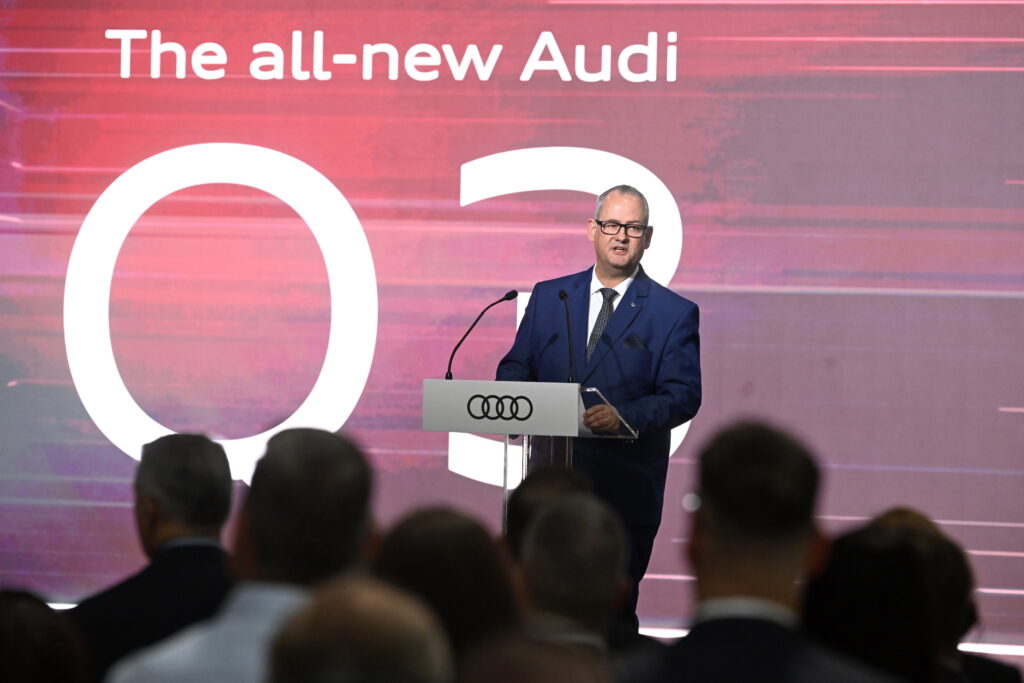
Michael Breme. Photo: MTI/Máthé Zoltán
He emphasized that demand for the model will be high, hence they want to take advantage of even more opportunities within production. The vehicle factory currently has an annual capacity of 185,000 units, which is fully utilized by the production of the Q3 and Cupra Terramar models.
Any units exceeding the vehicle factory’s capacity will be manufactured at Audi’s Ingolstadt plant. The body parts are manufactured in Győr, but the parts to be manufactured in Ingolstadt are painted and assembled there.
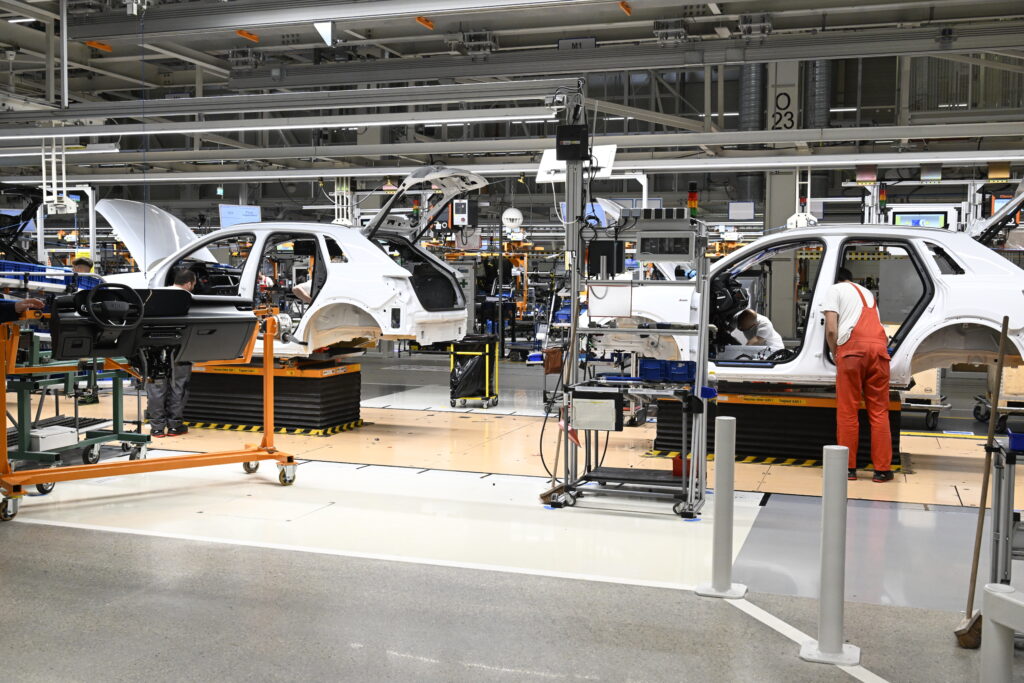
Workers at the Audi Hungaria plant in Győr. Photo: MTI/Máthé Zoltán
Zoltán Les, member of the board of directors responsible for vehicle production at Audi Hungaria Zrt., emphasized that the one million Q3 models manufactured in Győr have been sold in over 100 countries around the world.
Audi made in Győr accounts for seven percent of Hungary’s exports.
The new Q3 is a logical further development of the previous model, combining efficiency, driving dynamics, and comfort, reads a previous statement from Audi Hungaria. It features mild hybrid (MHEV) systems with partially electric internal combustion engines and a plug-in hybrid with a long electric range. With plug-in hybrid technology, a range of 120 kilometers is achievable. The SUV features a spacious interior and modern, customizable digital solutions.
Audi Hungaria Zrt., based in Győr, is the central engine supplier for the Audi and Volkswagen Group. The Audi Q3 and Q3 Sportback models, also available with electric powertrains, are manufactured in Győr. Last year, the company produced 179,710 vehicles and 1,580,991 powertrains in Győr. Audi Hungaria Zrt. achieved a turnover of €8.611 billion in 2024, with a taxable profit of €304 million.
Via MTI, Featured image: MTI/Máthé Zoltán